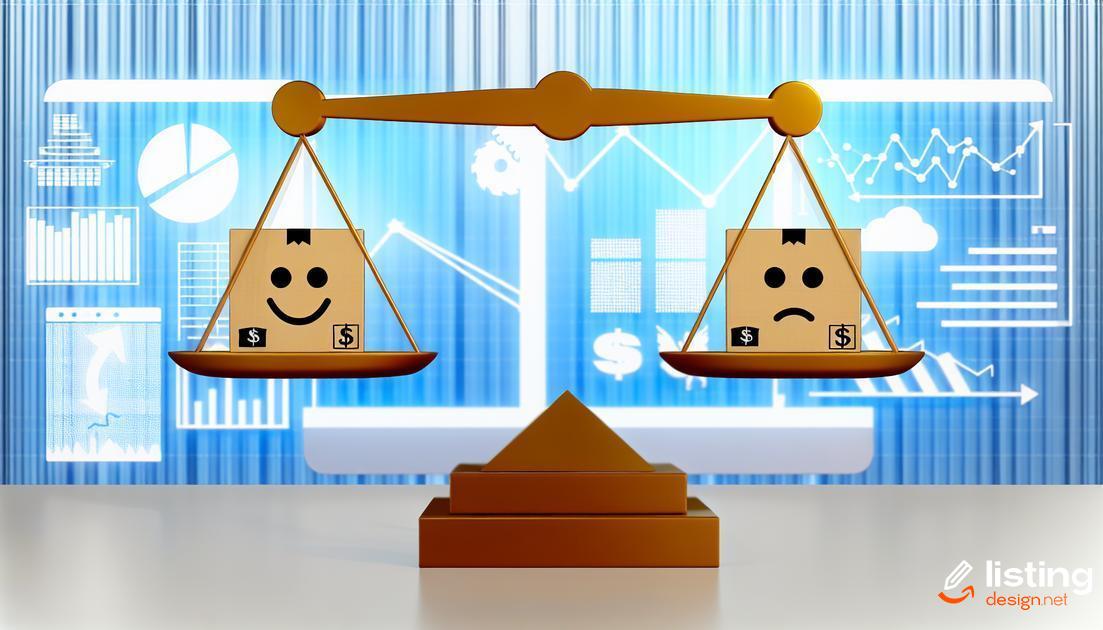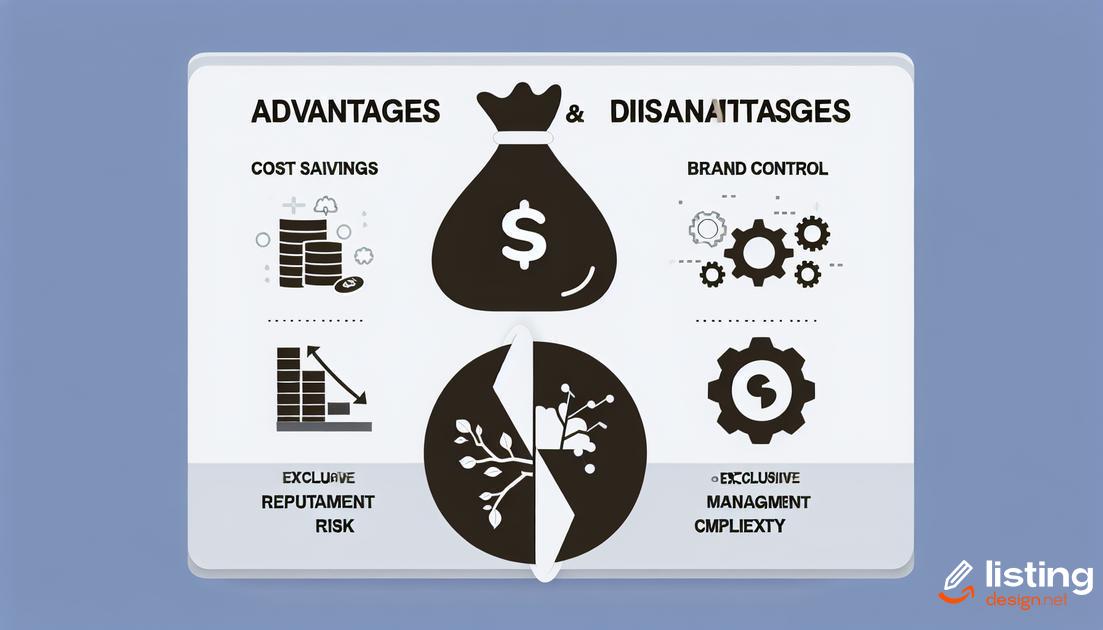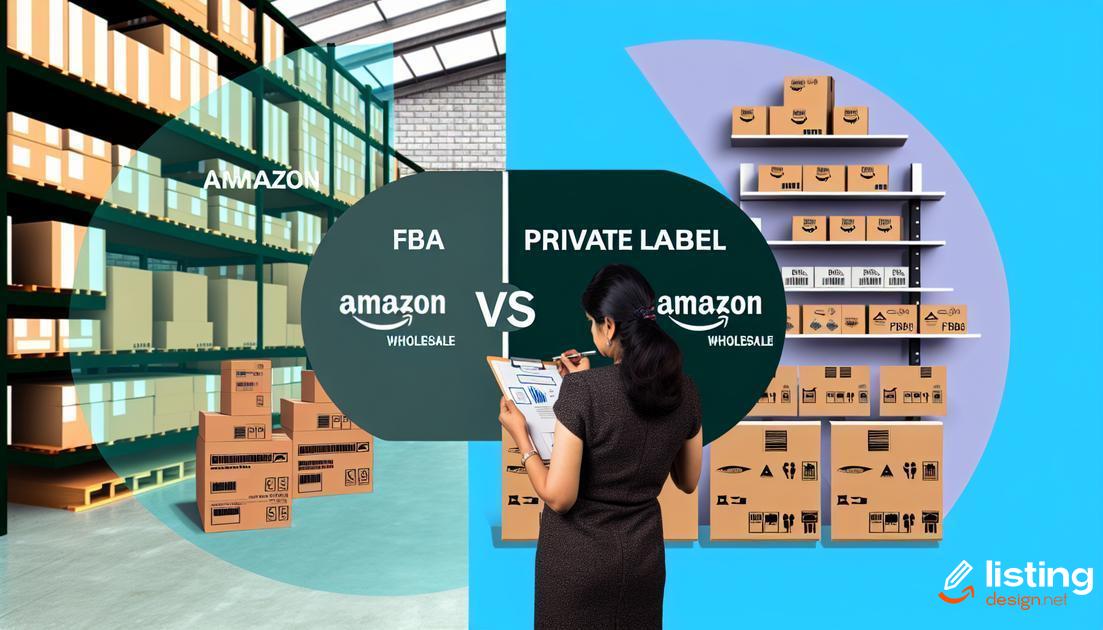Amazon FBA wholesale vs private label are two popular strategies for selling on Amazon. Understanding their differences is crucial for any seller. This article explores their pros, cons, and which may be the best fit for you.
Table of Contents
Understanding Amazon FBA Wholesale
Amazon FBA Wholesale involves purchasing bulk products directly from manufacturers or distributors at wholesale prices and then selling them on Amazon. This model allows sellers to leverage Amazon’s Fulfilled by Amazon (FBA) service, where Amazon handles storage, packaging, and shipping.
One of the key benefits of Amazon FBA Wholesale is the ability to buy established, well-known brands. It can be easier to attract customers since these products already have a market presence. Furthermore, because these products are often high in demand, they tend to sell quickly, resulting in faster turnaround and cash flow.
Another important aspect is that wholesale sellers usually deal with fewer product listings compared to private label sellers, making inventory management simpler. This can also mean less complexity regarding product compliance and fewer issues related to product quality assurance, as the products are typically already certified and tested.
However, Amazon FBA Wholesale also comes with its challenges. Securing products at the right price often requires building strong relationships with suppliers, which can be time-consuming. Margins might also be tighter due to competition and established product pricing, meaning you need to sell larger volumes to achieve significant profit.
Competition
Since you are often selling the same brands and products as other sellers, competition can be fierce. Therefore, leveraging strategies like optimizing your listings and winning the Buy Box become crucial for maintaining sales and profitability.
Regulations and Compliance
Understanding and complying with Amazon’s policies and the legalities of selling branded goods can be complex. Regularly staying updated with Amazon’s terms of service and ensuring you are authorized to sell certain brands is essential to avoid potential account issues or suspensions.
Pros and Cons of Amazon FBA Wholesale

Amazon FBA (Fulfilled by Amazon) Wholesale involves purchasing products in bulk from manufacturers or distributors and selling them on Amazon. This model can be advantageous due to lower per-unit costs and having existing demand for established products. However, it also has drawbacks such as high competition and thinner profit margins compared to other models like Private Label.
Pros: Purchasing products in bulk can result in significant cost savings. Since you are dealing with established products, market research is straightforward. There’s generally a steady demand, reducing the risk of holding unsold inventory. Utilizing Amazon’s logistics network ensures reliable and fast delivery to customers, enhancing customer satisfaction.
Cons: The lower profit margins necessitate selling high volumes to achieve substantial earnings. Competition can be fierce, especially for popular products. You have limited control over the differentiation of your products since you are selling items from existing brands. Market saturation may lead to price wars, continually squeezing profit margins.
What is Amazon FBA Private Label?
Amazon FBA Private Label involves purchasing generic products from a manufacturer and branding them with your own label before selling on Amazon. This method allows you to create a unique brand identity and stand out from other sellers. Unlike Amazon FBA Wholesale, where the focus is on reselling products from established brands, private label sellers have control over
product design, packaging, and branding
. This control can lead to better customer loyalty and increased profit margins but requires significant upfront investment in product development and marketing. Additionally, private label sellers must conduct extensive market research to ensure there is demand for their products and also to avoid direct competition with more established brands.
Advantages and Disadvantages of Private Label

Private label can offer substantial advantages for sellers on Amazon FBA. One major benefit is the ability to create a unique brand. This means enhanced control over product quality, packaging, and pricing strategy. With private label, you have the opportunity to build brand loyalty and potentially command higher prices. Since you’re not competing solely on price, your profit margins can be healthier.
However, private label also comes with its disadvantages. Initial start-up costs can be high, as you need to invest in product development, branding, and inventory. Another challenge is the time and effort required. Creating a successful private label product involves significant research, design, and marketing. There’s also a higher risk involved: if your product doesn’t perform as expected, you could be stuck with large amounts of unsold inventory.
Considerations like these are crucial when comparing to wholesale. Wholesale allows you to leverage existing brands but often at lower profit margins. This makes the decision between private label and wholesale a critical one based on your business goals and resources.
Start-up Costs and Profit Margins
When comparing start-up costs and profit margins between Amazon FBA Wholesale and Private Label, it’s important to consider several factors. Amazon FBA Wholesale typically involves purchasing bulk products from manufacturers and selling them on Amazon. The initial investment includes purchasing inventory in large quantities, shipping costs, and Amazon fees. This model requires less time on product development and branding, allowing for quicker market entry.
Conversely, Private Label demands more significant upfront investment. It includes costs for product research, design, prototyping, and production. Additional expenses arise from creating unique packaging and designing logos. Branding efforts also necessitate marketing budgets to build customer awareness and loyalty.
The profit margins in Amazon FBA Wholesale can be lower due to competition and pricing pressure from other sellers. However, established brands in Wholesale can enjoy stable, albeit smaller, profit margins. In the Private Label model, higher profit margins are achievable as products are unique or differentiated from competitors. Successful branding and customer loyalty can further enhance profitability.
Ultimately, assessing start-up costs and profit margins involves weighing the likelihood of high volume sales in Wholesale against the potential higher earnings and brand strength in Private Label. The choice impacts initial expenditure, ongoing costs, and long-term business sustainability.
Efficiency in Scaling Your Business

When analyzing efficiency in scaling your business, it’s crucial to understand the distinct processes involved. Amazon FBA Wholesale allows you to take advantage of an established supply chain, making it easier to stock products regularly. Large purchase orders can also leverage buying power, potentially improving overall profit margins. Moreover, you can quickly respond to market demand by replenishing inventory efficiently.
On the other hand, with Amazon FBA Private Label, scaling is reliant on your ability to manage the supply chain for custom-branded products. This often involves dealing with manufacturers, securing patents or design trademarks, and handling quality control. While this can be more complex, the upside potential is significant if your brand gains traction, as you have sole control over pricing and can build a dedicated customer base.
Efficiency in scaling through wholesale lies in speed and predictability, whereas private label efforts may provide long-term scalability through brand recognition and customer loyalty.
Branding and Customer Loyalty
One of the significant aspects to consider when comparing Amazon FBA Wholesale and Private Label is how each approach influences branding and customer loyalty.
Amazon FBA Wholesale
In the wholesale model, your primary objective is to purchase well-known products from established brands and sell them on Amazon. While the trust in these brands can lead to higher initial sales, the opportunity to build a personal brand is limited. Customers are loyal to the product’s brand, not your storefront. This often results in a transactional relationship, where your value to the customer is mainly in price and availability.
Private Label
Conversely, private labeling allows you to create and build your own brand. This strategy fosters a direct connection with your customers. When you invest in quality, packaging, customer service, and marketing under your brand, it can significantly enhance customer loyalty. Repeat business is more likely because customers develop trust and preference for your brand. Over time, this brand loyalty can lead to more stable revenue and potentially higher profit margins. Focusing on brand-building through private labeling can also offer unique opportunities for product expansion and customer retention strategies that are not as viable in the wholesale model.
Deciding the Best Option for You

When it comes to choosing between Amazon FBA Wholesale and Private Label, several factors need to be considered. Each business model has its own set of advantages and challenges that can impact your decision. Below are some key points to help you make an informed choice:
Cost and Investment
Wholesale: Generally requires a lower initial investment as you are buying products in bulk from suppliers. However, you may need significant capital to purchase large quantities upfront.
Private Label: Often involves higher start-up costs due to product development, branding, and marketing. This route may also require investments in design, packaging, and possibly patents or trademarks.
Control over Product
Wholesale: Limited control over the product features, quality, and packaging as you are selling already established brands.
Private Label: Offers complete control over product development, allowing customization to meet market needs and preferences. This can also facilitate building a unique brand identity.
Time to Market
Wholesale: Faster time to market since the products are already manufactured, tested, and ready for sale.
Private Label: Slower time to market due to the need for product development, testing, and manufacturing. This can delay the launch but also provides an opportunity for a more tailored product.
Risk and Competition
Wholesale: Higher competition as you are likely selling products similar to many other retailers. However, risks are lower since the products have already been validated in the market.
Private Label: Higher risk as your brand and product are new to the market. But lower competition if the product stands out and meets a specific market need.
Considering these factors will guide you towards the right decision based on your capabilities, business goals, and market conditions. Make sure to analyze your resources, and market trends, and assess risks versus rewards carefully before proceeding.


